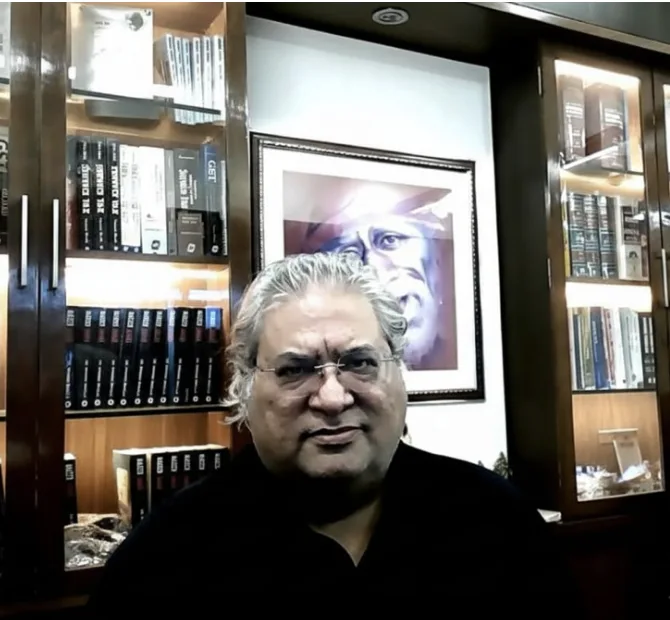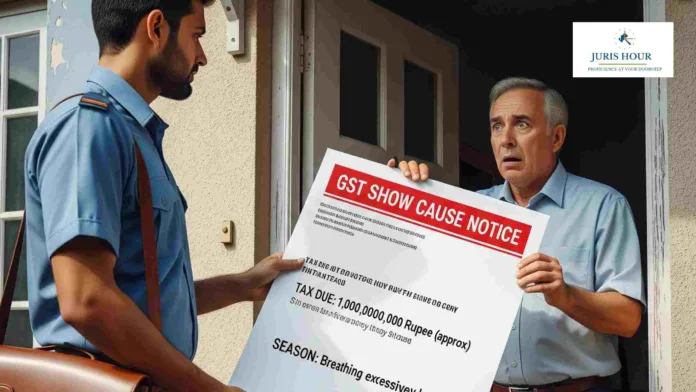
This Article pertaining to “The Flawed Practice of Issuing SCNs Under Section 122: The Constitutional, Statutory and Jurisdictional Limits” is written by Dr Monish Bhalla. He is a distinguished author, legal expert, and former officer of India’s Narcotics Control Bureau (NCB). With 37 years in public life, Dr. Bhalla has been a key figure in drug law enforcement and indirect taxation in India. His expertise in the fields of GST, Customs, and narcotics control has made him a leading voice in legal reforms and national policy. He is also a well-known columnist and has authored several books on GST, drug trafficking, and legal matters.
The Goods and Services Tax (GST) regime in India, governed by the CGST Act, 2017, was enacted to usher in transparency, certainty, and efficiency in indirect taxation. Yet, several procedural ambiguities continue to emerge in its administration, often leading to legally untenable actions by enforcement authorities. Recently, many legal consultants as well as chartered accountants practicing in the field of GST have noticed one such recurring concern—that is, the issuance of Show Cause Notices (SCNs) directly under Section 122 of the CGST Act, 2017—a practice that raises serious questions of legal validity and jurisdiction. Let’s examine this with a non-biased perspective.
Section 122: Penal in Nature, Not Procedural
The CGST Act has various chapters, and under these chapters are the relevant sections. Section 122 of the CGST Act falls under Chapter XIX titled “Offences and Penalties.” This section merely prescribes the nature of offences and the quantum of penalty that may be imposed upon contravention of GST provisions. It serves as a charging provision to define the contours of liability but is not a machinery provision. In simple words, it does not empower any officer to issue a show cause notice, nor does it lay down the procedure for initiating adjudication.
This procedural mechanism for determining tax liability and imposing penalties is specifically laid out in Chapter XV – Demands and Recovery, encompassing Sections 73 to 84. Section 73 (for non-fraud cases) and Section 74 (for fraud/suppression cases) are comprehensive adjudicatory provisions that include the requirement for issuance of a show cause notice, followed by an opportunity of hearing and determination of liability.
Thus, the issuance of an SCN under Section 122 alone, bypassing Sections 73 or 74, is fundamentally flawed and ultra vires the Act.
The CGST law draws a clear distinction between levy of penalty and its imposition:
- Section 122: Establishes conditions under which a person becomes liable to penalty—the “what” of penal liability.
- Sections 73/74: Provide the legal machinery for issuing SCNs and adjudicating penalty—the “how” of enforcement.
Further, Section 127 authorizes the imposition of penalty in residual cases not covered by Sections 73 and 74, but again, it only empowers issuance of a final order, not a show cause notice. Hence, SCN rooted solely in Section 122, without invoking procedural Sections 73 or 74, lacks statutory footing.
Section 73(1) of the CGST Act unambiguously states:
“Where it appears to the proper officer that any tax has not been paid…he shall serve notice…requiring him to show cause as to why he should not pay the amount specified in the notice along with interest…and a penalty leviable under the provisions of this Act.”
The phrase “penalty leviable under the provisions of this Act” clearly refers to the quantum prescribed in Sections 122 onward, but the notice procedure must flow from Section 73 or 74. A standalone notice under Section 122 is, therefore, procedurally unsustainable.
Who Is the Proper Officer Under Section 122?
Another critical flaw lies in the lack of statutory assignment of “Proper Officer” for Section 122. Under the CGST regime, only those officers designated by the Central Board of Indirect Taxes and Customs (CBIC) via Circular No. 3/3/2017-GST dated July 5, 2017, as amended by Circular No. 31/05/2018-GST dated February 9, 2018, are authorized to act under specific provisions of the Act.
On perusal of the column-wise distribution of powers in the above circulars, it becomes evident that no officer—whether from the Central GST, State GST, or DGGI—has been assigned powers to act under Section 122. Therefore, any action under this section, including issuance of a show cause notice or penalty order, suffers from jurisdictional illegality.
This interpretation finds judicial support as well, where courts have repeatedly emphasized that jurisdiction must stem from express statutory assignment, and any action by an officer lacking such designation is null and void in law.
The failure of adjudicating authorities to examine this foundational flaw—particularly the lack of “Proper Officer” assignment for Section 122—does not cure the illegality. Silence on such a cardinal issue amount to abdication of quasi-judicial responsibility. A decision rendered without jurisdiction is a nullity, and any order or penalty imposed under such proceedings is liable to be quashed by the courts.
Thus, if the issuance of a show cause notice under Section 122 of the CGST Act is without invoking Sections 73 or 74, and by an officer who is not designated as “Proper Officer” for that section, it is not just a procedural irregularity—it strikes at the root of jurisdiction. Such notices and subsequent orders are patently illegal, arbitrary, and unenforceable under law.
As GST evolves, it is imperative that enforcement is aligned with the legislative scheme and constitutional principles of natural justice. For every taxpayers, challenging such jurisdictionally flawed SCNs is not just a right but a necessity to uphold the rule of law.

